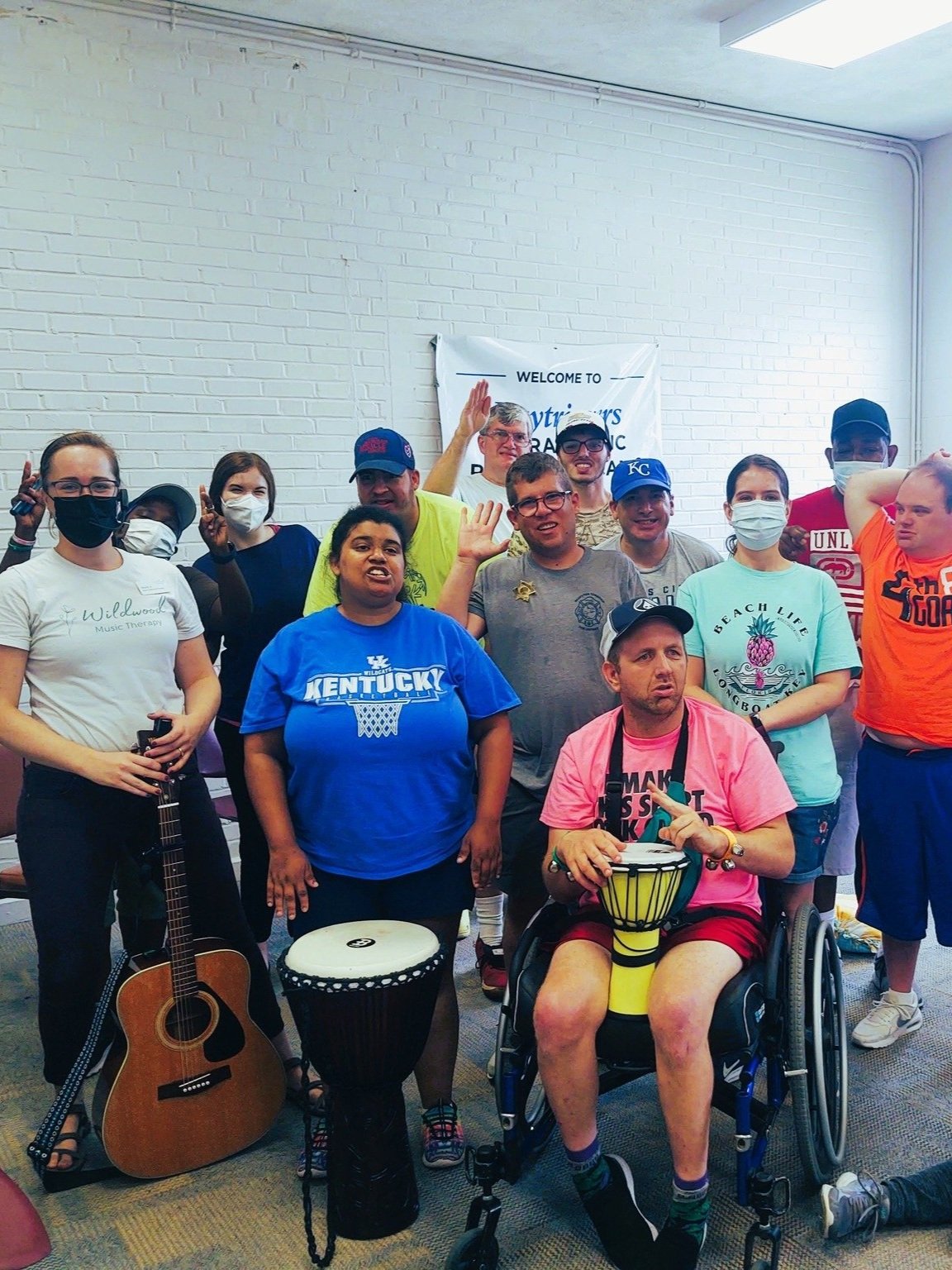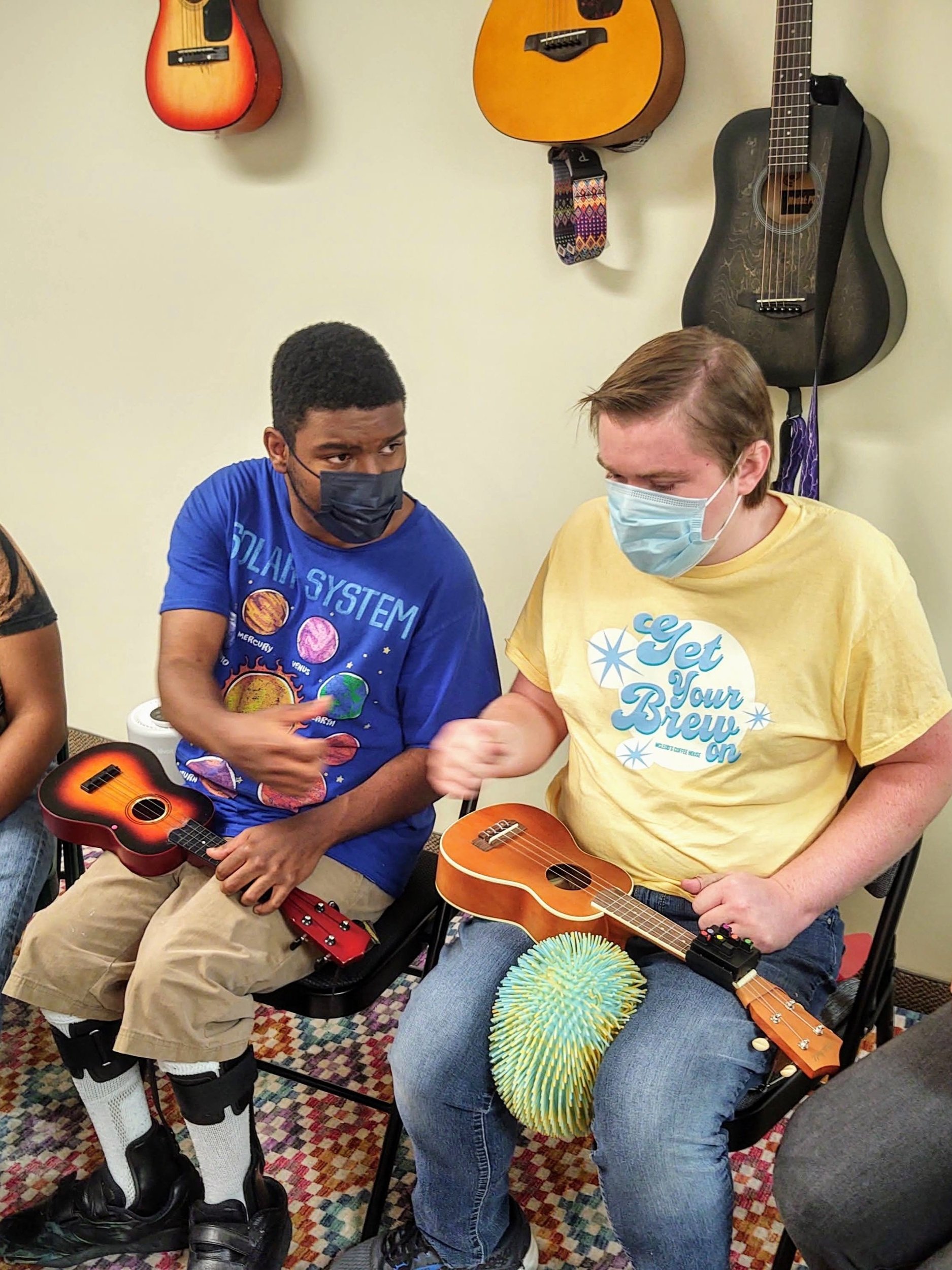
What is Music Therapy?
Music therapy is the evidence-based practice of using individualized music experiences to to address specific client goals, within a therapeutic relationship with a board-certified music therapist.
These may include emotional, social, neurological, cognitive, spiritual, developmental, and physical goals, such as:
mood
quality of life
emotional expression
coping skills
supportive environment
cognitive stimulation
sensory processing
self-esteem
reminiscence
family support
Elevate, increase, or enhance:
communication
PT, OT, goals ST goals
academic goals
developmental growth
personal growth goals
emotional processing
general wellness
physical activity
motivation
relaxation
anxiety
agitation
depression
symptoms of sundowning
pain perception
sensory sensitivity
confusion
resistance to care
caregiver stress
isolation
impact of length of stay
impact of illness
impact of life change
nausea
Decrease or reduce:
Music therapy might look like play one minute and counseling the next minute depending on the client's needs.
Music therapy interventions include things like:
guided imagery
reminiscence and life review
lyric fill-in
singing
stimulation of speech
co-treatment with other therapies
instrument play
singing
songwriting
music listening
lyric analysis
movement to music
music-facilitated relaxation
therapeutic conversation
verbal processing
sensory stimulation
music games
imaginative play
…and more!
Music therapists work with people of all ages and stages of life.
You’ll see music therapists working with clients in pre-op, general, and intensive care in adult and pediatric hospitals, psychiatric hospitals, preschools through high schools, adult day centers, hospice care, long-term care, memory care, community centers, private homes, rehabilitation, through telehealth, and more.






Music therapy is a credentialed profession that requires a college degree and national board-certification.
To become a board-certified music therapist, candidates must:
complete a four-year degree or it’s equivalent. (main areas of study: musical foundations, clinical foundations, and music therapy foundations and principles.)
complete a 1200-hour supervised music therapy internship
pass the national board-certification exams
and complete continuing education to maintain the Board-Certified Music Therapist credential (MT-BC)
Some music therapists go on to complete graduate level training, which is available up to the doctorate level.
Music therapists usually play the client's preferred music live using voice and piano or guitar. Our repertoire ranges from 1910s to today's hits, from hymns to hard rock.
Live, preferred music creates a highly engaging experience that can be adapted in the moment to meet the client’s needs. Sometimes we may use recorded music if it suits the goals or the style of music better, or if we need to provide assistance for the client to engage in the activity. We may also select or create other age-appropriate music specific to the client’s goals.
Group music therapy offers many of the same benefits as individual music therapy, with some additional unique opportunities.
In group music therapy, participants have more opportunities for:
socialization
social skills
social cohesion
cooperation
bonding
leadership
identity
turn taking
Fill out an intake form, purchase a class package, or contact us to talk about what options are available.




